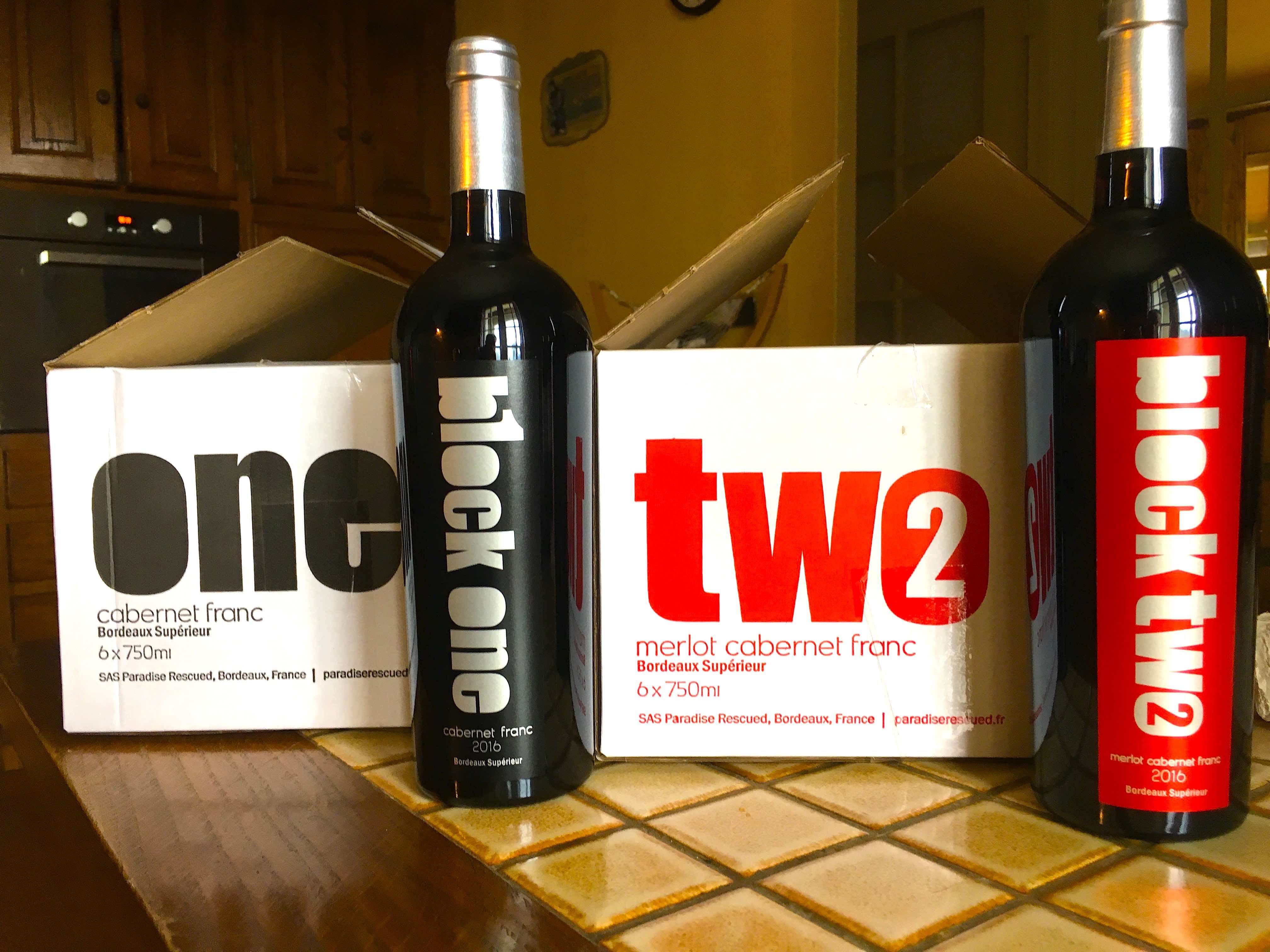Paradise Rescued was started in 2009 with a mission to sustain and maintain the rural heritage of the small village of Cardan, 25km south-east of Bordeaux, to produce fine organic Bordeaux wines.
Founded by David Stannard, and his family, who bought a small holiday property in Cardan in 1992, it started out with a clear mission: to protect and sustain the beautiful land and area where he and his family lived and secondly to produce organic high quality handcrafted wines.
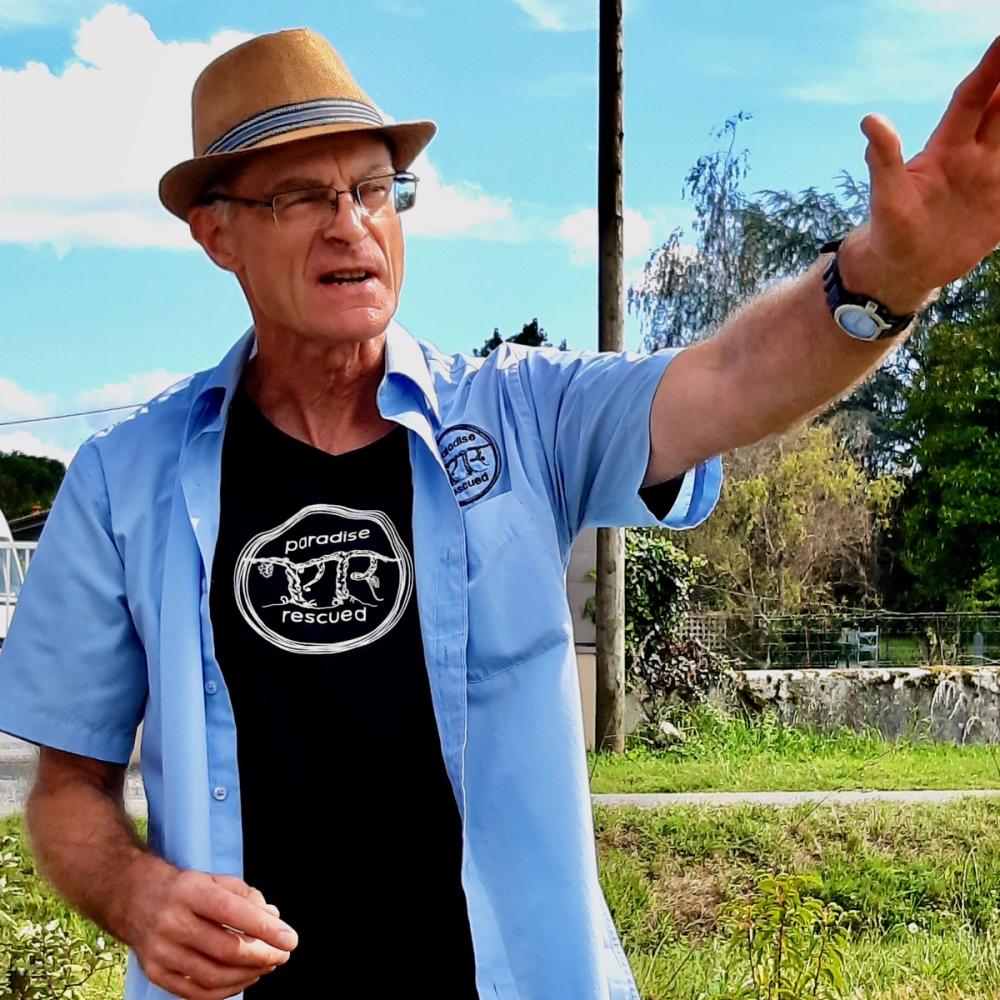
David Stannard has a clear vision to make quality, organic wine based on regenerative viticulture from Paradise Rescued in Bordeaux
Paradise Rescued started with less than a half hectare block of Cabernet Franc in 2009 from which it made its Block One varietal Cabernet Franc brand. A second plot of land followed in 2011 with the addition of a small section of (now) 65 year-old vines and an area that required replanting - allowing Stannard to introduce some Merlot, plus a small section of Cabernet Franc.
Today, this vineyard produces the Paradise Rescued Block Two Merlot Cabernet Franc wine and with the launch of the 2019 vintage wines, Block Three varietal Merlot will be added to the portfolio. The vineyard was certified organic in 2016.
Protecting the vines
Stannard explains: “At the point of purchase and start of Paradise Rescued management, our vineyards were not in a good condition. From day one, an organic viticultural strategy has been adopted – no synthetic herbicide pesticide insecticide chemicals have been used. After a period of official conversion, the complete Paradise Rescued vineyard was certified organic by ECOCert in 2016. Through a programme of annual auditing, we have maintained that standard ever since.
“Our organic philosophy is based on two reasons. Firstly, given our sustainability commitment to our community families and neighbours who live close to the vineyards, the use of synthetic chemicals is not acceptable. Secondly, we have sought to regain the health of the soil, provide a more balanced ecosytem and fully healthy organic vineyard as this is reflected in our wines.
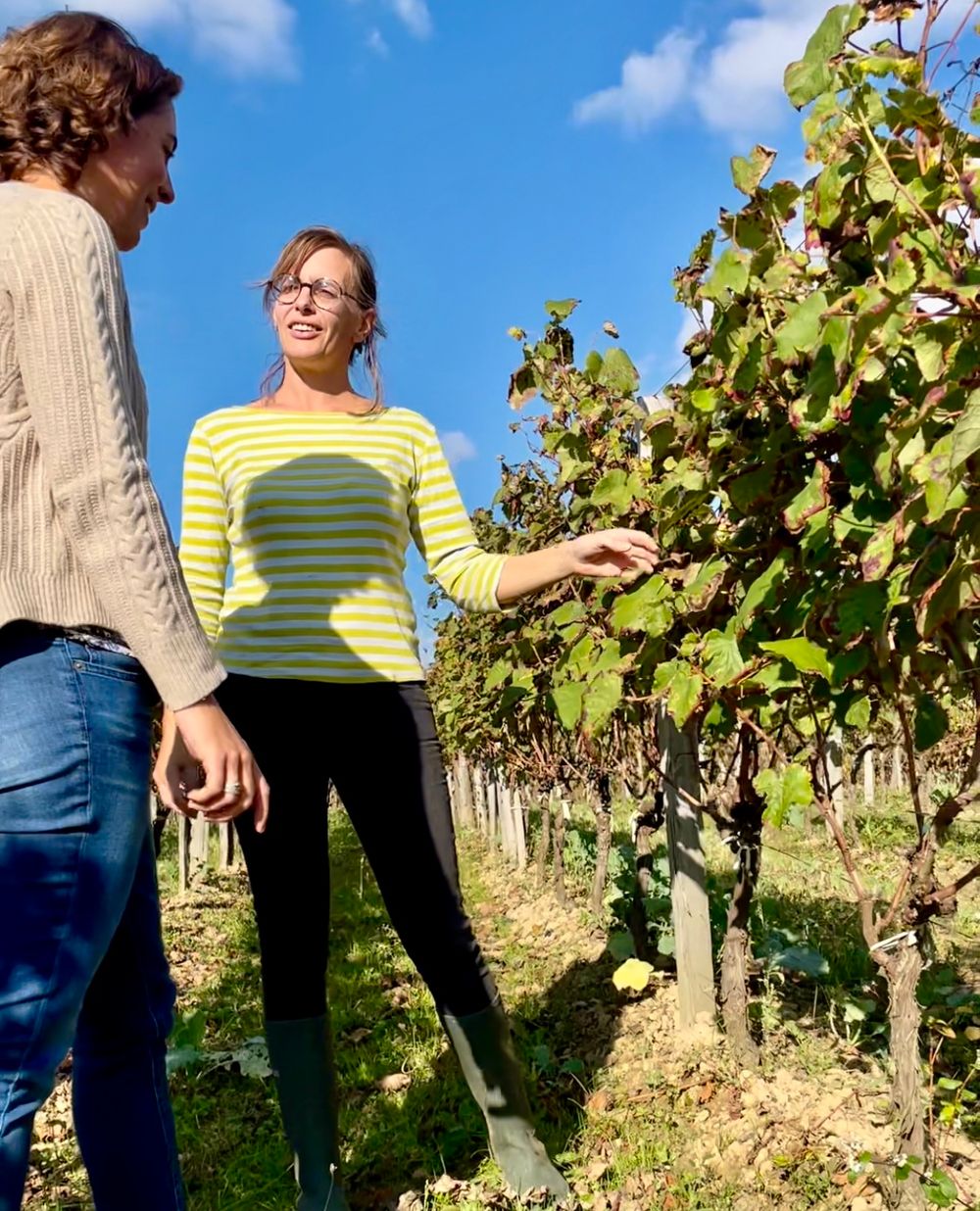
Paradise Rescued has been organic since 2016
“As far as practical as possible, our vineyard operations are carried out by hand, minimising the impacts of heavy mechanical equipment on the land and bringing the maximum personal care and attention possible to each vine.”
Big ambitions
The property and vineyards might be small but Stannard has big ambitions and he knew if the wines were to be recognised outside of his local area he needed to get independent approval. Hence he started to enter different international wine competitions, as a way to benchmark its quality both locally and globally.
Paradise Rescued entered the London Wine Competition for the first time in 2023, winning two silver medals which helped them re-assess their pricing and quality, whilst also welcoming the positive feedback from the judges for all their hard work along the way.
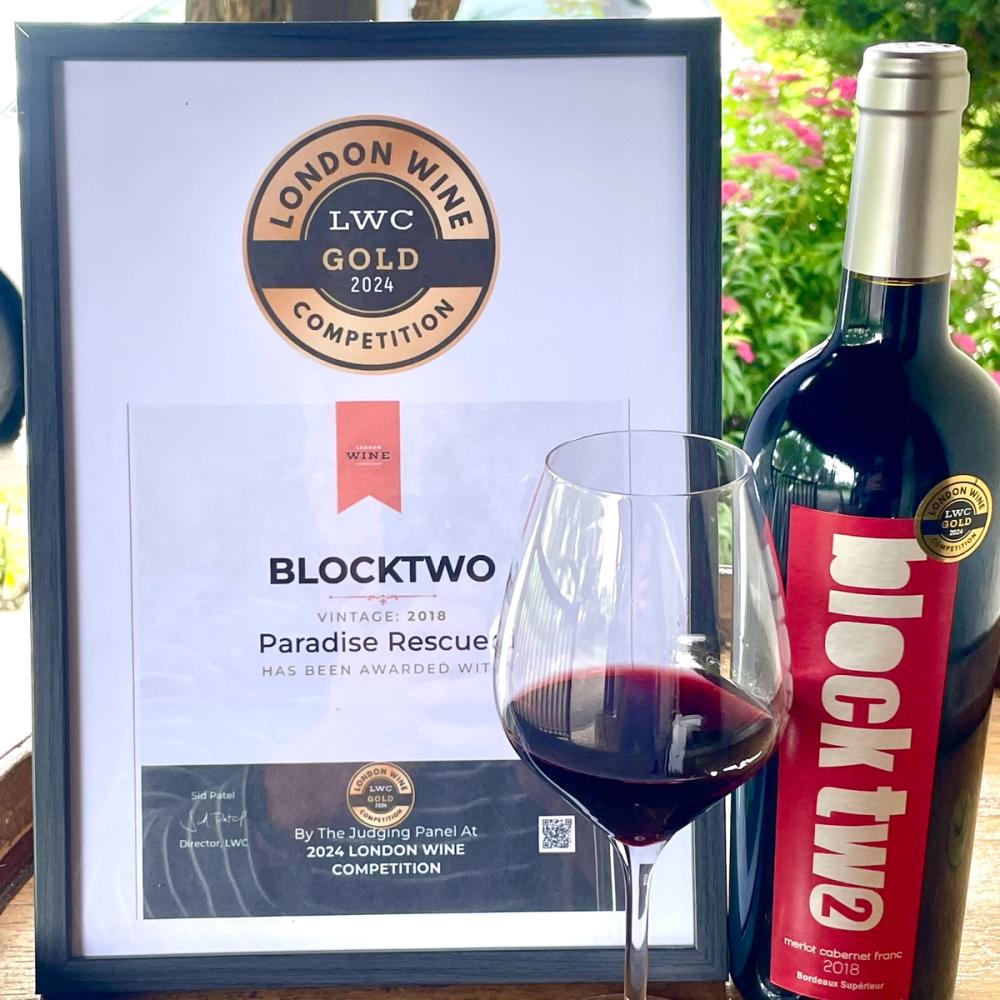
This was followed in 2024 when it won two gold medals - including its 2018 Cabernet Franc and Merlot blend - Block Two.
Here Stannard explains what impact entering the awards and winning two medals has had on the business:
“The biggest impact of winning the awards is having an independent assessment of the quality of the wine which we can now present to our customers. Having already won several business and wine awards, the gold awards further reinforce the level of excellence that we have achieved. The feedback from the judges also helps us look at ways, as a niche brand, that we can improve.”
He adds: “We have been able to use the gold medals to talk and communicate directly with our customers using our regular newsletters and social media platforms.”
As it only produces around 2,500 bottles per year it has to be reasonably selective where it sells its wines, but winning gold and silver medals in the London Wine Competition means it will be able to target more private customers and what it calls “high-quality niche hospitality venues, predominantly selling into the French and European markets, as well as Australia”. “We also have clients in a number of countries around the globe,” says Stannard.
Regenerative farming
Paradise Rescued also looking at how it can play its part in promoting regenerative farming practices and has produced its own Vision 2030 targets which will see it introduce various projects to help promote regenerative viticulture, soil enhancement, through to how it works with its customers.
Stannard adds: “Great wines are made from excellent fruit produced on healthy vines growing in active living healthy soil. As our organic viticulture journey has evolved from the start, the emphasis has continued to focus on the vineyard but more and more on the soil.
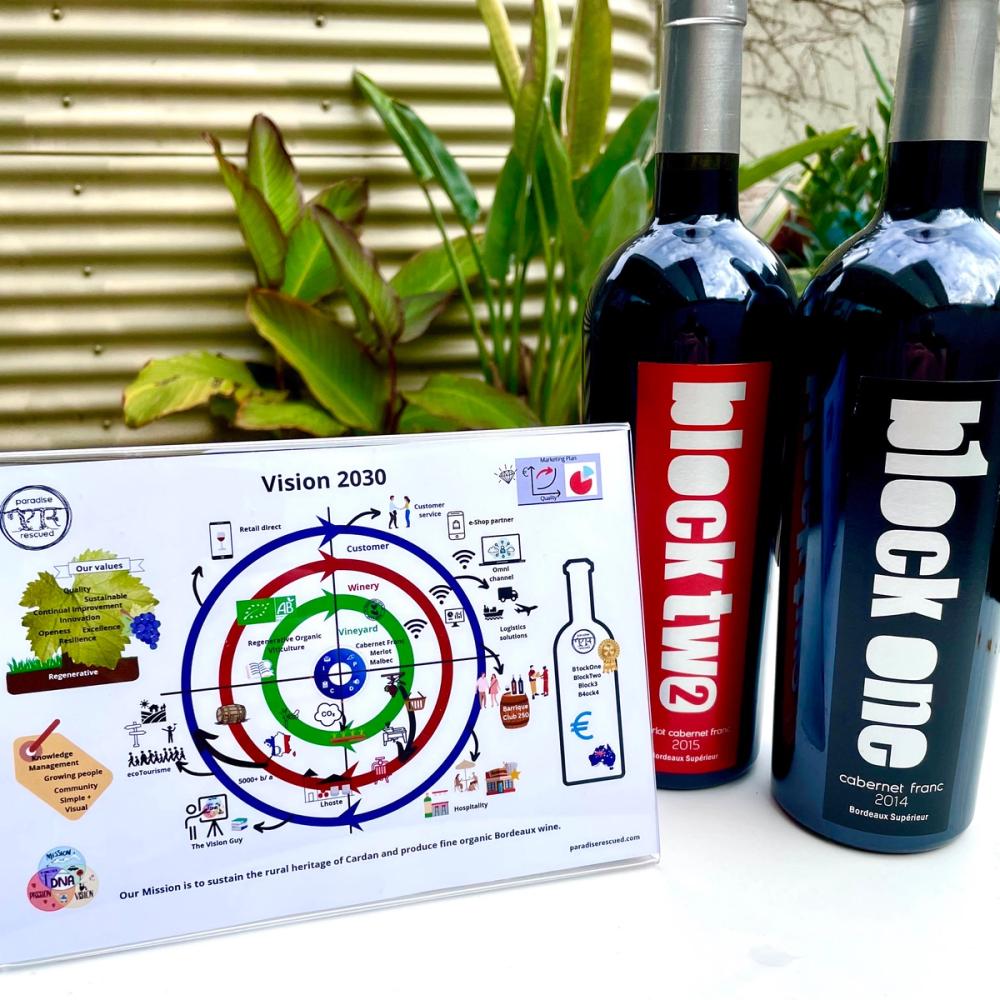
Paradise Resccued's 2030 Vision...
“The attention to detail required in great winemaking will always remain a key skill and knowledge for our our winery team. Increasing effort is now being given to looking at our soil management practices as our 2030 Vision puts the emphasis on Regenerative Organic Viticulture to increase the biodiversity in our vineyards and the increase the potential of our soil to sequester greater carbon and provide an even healthier ecosystem.
“It is clear to us that the Bordeaux vineyards are an intense monoculture of vines. In our plans moving forward, we aim to broaden our viticultural / agricultural diversity such we will pass on a vineyard and wine that are significantly beneficial to our community by comparison to what we started with. This is a much bigger project but one that will provide lasting benefits.”
How to enter 2024 London Competitions
To take advantage of the super early bird pricing that ends on August 31 go to the individual websites for the three competitions and follow the entry process:
Fee schedule
London Wine and London Beer Competition
£90 Super Early Bird - May 1 2024 to August 31 2024
£120 Early Bird - September 1 2024 to 30 November 30 2024
£140 Regular - December 1 2024 to 28 February 28 2025
London Spirits Competition
£110 Super Early Bird - May 1 2024 to August 31 2024
£140 Early Bird - September 1 2024 to November 30 2024
£180 Regular - December 1 2024 to February 28 2025
